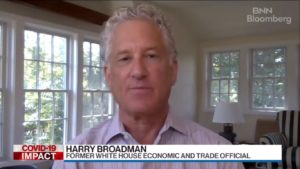
Harry Broadman might have earned his stripes in working in the US administration, the handling of the Tiktok deal filled him with “utter amazement”, he tells at Marketwatch. “Why issue the executive order if you are going to negotiate that way?” Broadman asks.
Marketwatch:
Harry Broadman, a managing director at global consulting firm Berkeley Research Group and a senior fellow of the School of Advanced International Studies at Johns Hopkins University, has a long history in Washington that includes serving as a member of the government board tasked with figuring out these issues, the Committee on Foreign Investment in the U.S., or CFIUS, in the 1990s. He told MarketWatch he was in “utter amazement” as to how the TikTok deal was being handled.
“I follow this minute-by-minute, literally, [and] speak to clients and reporters call all the time,” he said. “This is the challenge of assessing things — we really don’t know anything with certainty, other than the principals involved. I don’t know anyone on CFIUS who knows the full contours of what has been discussed.”
He added that CFIUS and the White House lawyers must be “beside themselves” because of the way events have transpired since Trump called vaguely for a ban on dealings with the Chinese owner of TikTok in an executive order that also targeted Tencent Holdings’ TCEHY, -1.32% WeChat.
“Why issue the executive order if you are going to negotiate that way?” Broadman asked.
Harry Broadman is a speaker at the China Speakers Bureau. Do you need him at your meeting or conference? Do get in touch or fill in our speakers’ request form.
Are you looking for more experts on the ongoing trade war between China and the US? Do check out this list.
